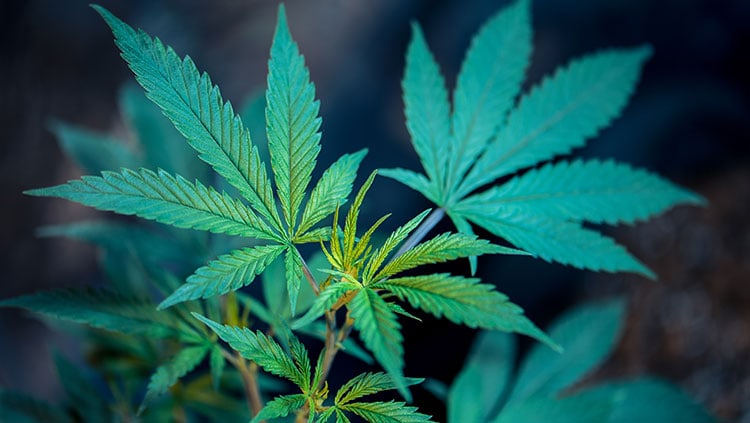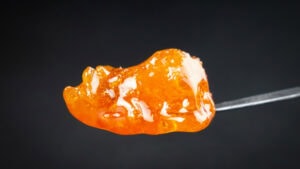Though more individuals are turning to cannabis to treat a variety of ailments, this medicinal plant still carries an undeserved stigma, largely in part due to misinformation online and in conversation. Such misunderstandings have created many cannabis myths and misconceptions, and we’re here to set the record straight.
Myth #1: Cannabis use leads to less motivation.
Fact: The “lazy stoner” stereotype has been discredited by new research that in fact shows teens and adults who consume cannabis are “no less likely to be motivated”. While mainstream media has frequently suggested cannabis use can lead to apathy and loss of interest in pleasure from rewards, this is often grossly exaggerated. As part of the study 274 adults and teens were included, on the basis that they had smoked or consumed cannabis at least weekly.
“Our results suggest that cannabis use at a frequency of three to four days per week is not associated with apathy, effort-based decision-making for reward, reward wanting, or reward liking in adults or adolescents…[O]ur study, one of the first to directly compare adolescents and adults who use cannabis, suggests that adolescents are no more vulnerable than adults to the harmful effects of cannabis on motivation, the experience of pleasure, or the brain’s response to reward.”
A separate study also proves that cannabis does not create amotivational behavior, focusing on effort-related decision making and cannabis use among college students.
Myth #2: Cannabis is a gateway drug.
Fact: The Gateway Drug Theory dates back to the 1930s when the head of the Federal Bureau of Narcotics, Harry Aslinger, campaigned heavily against cannabis use, arguing it would lead to criminal acts and violence. However, the National Institute on Drug Abuse (NIDA) said that most people who use cannabis do not use other, “harder” substances. It was more often their subsequent social interactions with others who do use drugs that actually increased their chances of trying said other drugs.
In fact, cannabis use actually has been shown to decrease opioid consumption or prevent opioid dose escalation. “Patients who self-report consuming cannabis following hip or knee surgery are less likely than non-users to engage in the long-term use of prescription opioids,” according to data in the journal Arthroplasty Today.
Additionally, according to a study by the Institute of Medicine, there is “no conclusive evidence that the drug effects of [cannabis] are causally linked to the subsequent abuse of other illicit drugs.”
Myth #3: All types of cannabis will make you high.
Fact: Cannabis contains chemical substances known as cannabinoids, e.g. CBD, CBG, CBN, and THC. The psychoactive cannabinoid responsible for the typical ‘high’ feeling is tetrahydrocannabinol (THC). The second most abundant cannabinoid is cannabidiol (CBD), and it has no psychoactive effects. CBD can be used to target symptoms of a variety of ailments, from sleep disorders, to epilepsy, and even menopause. Whether the cannabis you consume has THC or not will determine whether it will make you ‘high’.
Myth #4: Prenatal cannabis use is associated with symptoms of ADHD in children.
Fact: In-utero cannabis exposure is not linked to elevated risk of ADHD in children. A study evaluated the relationship in 2,408 children. “In our study, we did not find any association between in-utero occasional or regular exposure to cannabis and the risk of ADHD in children, as well as overall exposure to cannabis and the risk of ADHD in children,” authors concluded.
Those with ADHD have actually reported self-treating with cannabis, claiming that it helps some of their more severe symptoms (e.g., agitation, irritability, lack of control) while also carrying fewer side effects to prescription medications.
Myth #5: CBD elevates liver enzymes to dangerous levels.
Fact: While the FDA has recently warned that CBD can harm the liver, research has reported no evidence of liver toxicity associated with CBD.
“Observational data gathered from 839 participants — ages 18–75 from across the U.S. and known to be taking hemp-derived CBD products orally for a minimum of 30 days — showed that CBD at the doses consumed in the study is not associated with clinical liver toxicity. Previous studies have suggested that prescribed cannabidiol (CBD) products may cause elevations in liver tests (LT).”
Most of the LT elevations having been reported are likely due to the conditions or medications for which the individuals are taking CBD.
Another study, requested by the FDA, shows that CBD products do not cause liver damage when taken orally. The analysis was 7 months long, and evaluated the impact of CBD on liver health through clinical trials with 839 participants.
Advocating for Cannabis
With so many common misconceptions about cannabis, being as educated as possible helps to ensure the important work can be done. Simple conversation starters can be powerful tools for initiating change! Having a well-rounded knowledge of the benefits and drawbacks of the cannabis plant can also help lead to greater informed policy.
Our blog is a great place to start learning more about cannabis. For any further questions, Realm of Caring is here to help! From quality product selection in your area to dosing guidance along the way, our care team is available. You can call our free hotline at 719-347-5400, email info@realmofcaring.org, or schedule an appointment.







